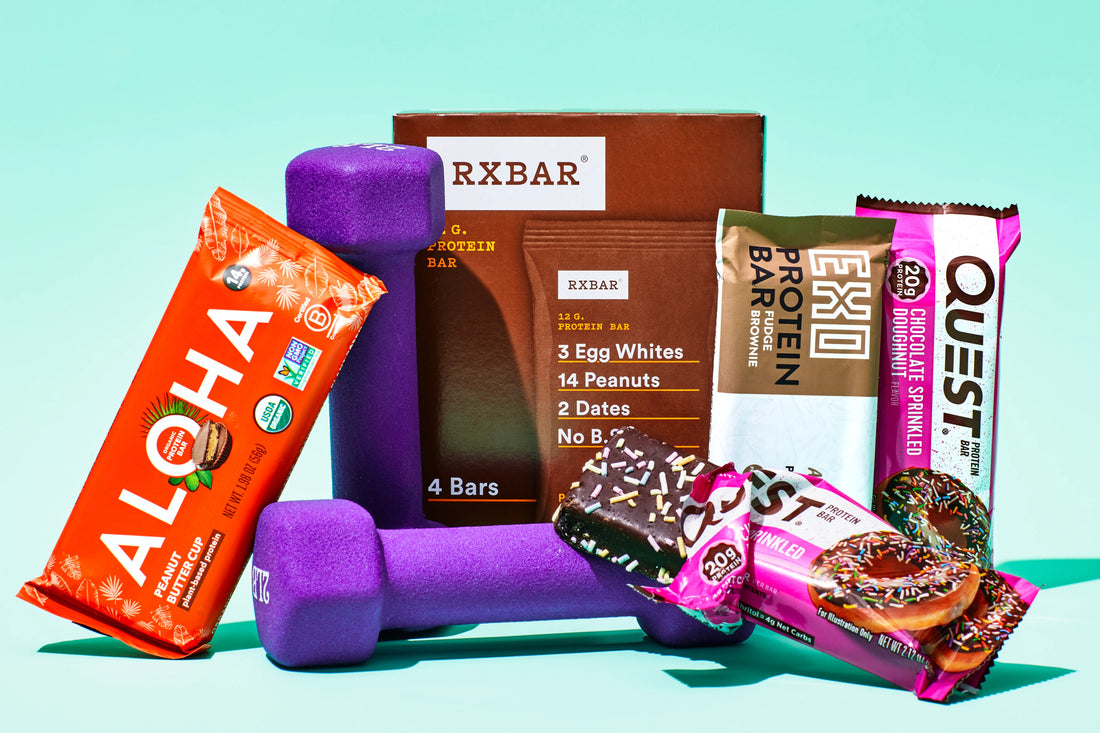
Low Carbs, High Risk? The Truth About Pure Protein Bars
Share
Protein bars are everywhere—on grocery shelves, in gyms, and marketed all over social media as the perfect solution for busy, health-conscious people. Many of them promote themselves as low-carb, high-protein, or even keto-friendly. But do these claims always reflect nutritional quality?
This article takes a deeper look at protein bars in general: what they offer, what they hide, and why a “low-carb” label doesn’t always mean a healthy choice.
1. Net Carbs Can Be Misleading
Most low-carb protein bars advertise reduced “net carbs” by subtracting fiber and sugar alcohols from their total carbohydrate count. While this calculation may seem straightforward, it doesn’t always represent how your body reacts to the ingredients.
Some sugar alcohols—especially maltitol—can still raise blood sugar and insulin levels, which is counterproductive for people aiming to stay in ketosis, manage diabetes, or maintain steady energy throughout the day. If your diet depends on accurate carb tracking, you’ll want to look beyond the packaging.
2. Many Bars Lack Sufficient Fiber
Fiber plays a vital role in digestion, blood sugar control, and satiety. A bar that’s low in net carbs but also low in fiber may not be as beneficial as it seems. Many common protein bars contain just 1–2 grams of fiber—far below the amount needed to support digestive health or keep you feeling full.
For individuals relying on these bars as snacks or meal replacements, the lack of fiber could lead to increased hunger or irregular digestion.
3. Artificial Additives Are Commonplace
One glance at the ingredients list on many protein bars reveals a lineup of artificial sweeteners (like sucralose or acesulfame potassium), sugar alcohols, synthetic flavors, and processed oils. While these ingredients may help improve shelf life or reduce sugar content, they may also contribute to digestive discomfort, especially when consumed regularly.
If you're striving for a clean diet or have sensitivities to certain additives, it's worth seeking out bars that use natural sweeteners and whole food ingredients.
4. Macronutrient Imbalance Can Undermine Your Goals
A good protein bar should deliver a balanced profile—not just protein. Many bars on the market are low in healthy fats and high in processed protein isolates, which might not provide lasting energy or support metabolic goals like ketosis.
For people on low-carb or high-fat diets, bars with poor fat content or low satiety value may leave you feeling unsatisfied or cause you to overeat later.
Conclusion: The Label Isn't the Whole Story
While protein bars can offer convenience and nutritional benefits, not all options live up to their claims. Some are closer to candy bars in disguise—low in fiber, high in sugar alcohols, and packed with artificial ingredients.
When choosing a protein bar, look for:
-
At least 10g of protein
-
3–5g of fiber or more
-
Healthy fats from nuts, seeds, or natural oils
-
Natural sweeteners like stevia or monk fruit
-
A short, whole-food ingredient list
Reading beyond the front of the package can make all the difference.
Quick Pros & Cons
Pros
-
Convenient source of protein
-
Easy to carry and store
-
Useful for post-workout or on-the-go fueling
Cons
-
Many contain misleading net carb math
-
Low fiber in many popular options
-
Artificial sweeteners and low-quality oils are common
-
May not provide lasting satiety
FAQs
Are protein bars healthy?
They can be—when made with clean ingredients and a balanced macronutrient profile. Always read the label.
Can protein bars cause bloating or gas?
Yes. Sugar alcohols like maltitol or high fiber content in certain bars may lead to digestive discomfort.
Can protein bars be used for weight loss?
Yes, if used strategically as a high-protein, low-sugar snack. But they should not replace whole meals too often.
Are protein bars keto-friendly?
Some are, but many include sugar alcohols or hidden carbs that can interfere with ketosis.
What’s the ideal amount of protein in a bar?
Most adults should look for bars with 10–20g of protein, depending on activity level and goals.
Do protein bars count as processed food?
Yes, most do. If you're minimizing processed foods, look for bars with whole-food ingredients and minimal additives.
Can I eat protein bars every day?
Occasionally is fine, but relying on them daily could lead to nutrient gaps. Whole foods should remain your base.
